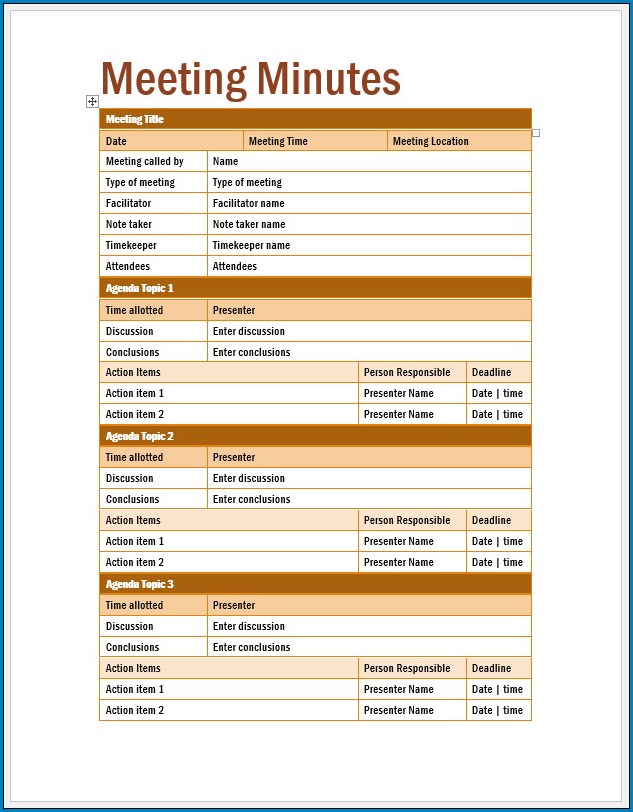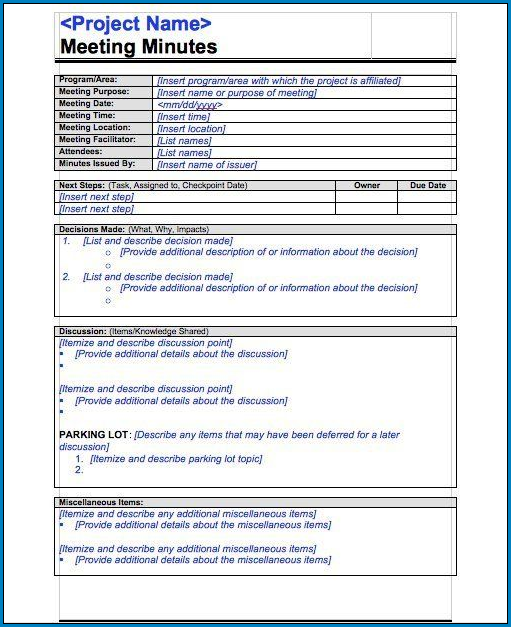
Meetings are a crucial part of any organization’s operations. They provide a platform for team members to discuss important matters, make decisions, and assign tasks. However, the discussions and decisions made during meetings can easily be forgotten or misinterpreted if not properly documented. This is where meeting minutes come into play.
Meeting minutes serve as an official record of discussions, decisions, and action items, providing accountability, communication, and a historical reference for attendees and those unable to attend.
What are Meeting Minutes?
Meeting minutes are written records that capture the key points discussed during a meeting. They include details such as the date and time of the meeting, the names of attendees, the agenda items, discussions, decisions made, action items assigned, and any other important information relevant to the meeting.
Minutes are typically taken by a designated individual known as the scribe or secretary, who is responsible for accurately documenting the proceedings of the meeting.
Samples of Meeting Minutes:




Why are Meeting Minutes Important?
Meeting minutes play a crucial role in the effective functioning of organizations for several reasons:
- Accountability: Minutes serve as a written record of decisions and actions taken during a meeting, holding participants accountable for their commitments.
- Communication: Minutes provide a means of communication between meeting attendees and those unable to attend, ensuring everyone is informed about the discussions and outcomes.
- Historical Reference: Minutes serve as a historical reference, allowing organizations to track progress, refer back to past decisions, and learn from previous meetings.
- Task Tracking: Minutes document action items assigned during the meeting, helping teams to track progress on tasks and follow up on deadlines.
- Alignment: Minutes help ensure that all team members remain informed and aligned on key decisions and strategies, preventing miscommunication and misunderstandings.
- Legal Protection: Meeting minutes can also provide legal protection for organizations by documenting important discussions, decisions, and actions taken during meetings.
What to Include in Meeting Minutes?
When taking meeting minutes, it’s important to include the following key elements:
- Meeting Details: Date, time, location, and type of meeting.
- Attendees: List of all participants present at the meeting.
- Agenda Items: Outline of topics discussed during the meeting.
- Discussion Points: Summary of key points discussed during the meeting.
- Decisions Made: Record of decisions taken and any voting outcomes.
- Action Items: List of tasks assigned with responsible parties and deadlines.
- Next Steps: Future actions to be taken and follow-up plans.
How to Take Effective Meeting Minutes
Follow these tips to ensure your meeting minutes are accurate, comprehensive, and useful:
- Prepare in Advance: Familiarize yourself with the agenda and key discussion points before the meeting starts.
- Focus on Key Points: Capture the main ideas and decisions without getting bogged down in unnecessary details.
- Be Objective: Use neutral language and avoid personal opinions or biases in your minutes.
- Clarify Action Items: Clearly document tasks, deadlines, and responsible parties to ensure accountability.
- Review and Distribute: Review your minutes for accuracy and clarity before distributing them to participants.
Tips for Effective Meeting Management
In addition to taking thorough meeting minutes, consider implementing the following practices to improve overall meeting effectiveness:
1. Set Clear Objectives:
Define the purpose and desired outcomes of the meeting to keep discussions focused and productive.
2. Create an Agenda:
Prepare a detailed agenda outlining topics to be discussed, time allocations, and expected outcomes.
3. Encourage Participation:
Foster an inclusive environment where all participants feel comfortable sharing their ideas and opinions.
4. Stay on Schedule:
Adhere to the meeting timeline to respect participants’ time and ensure all agenda items are addressed.
5. Summarize Key Points:
Recap important decisions, action items, and next steps at the end of the meeting to ensure clarity and alignment.
6. Follow Up on Action Items:
Assign tasks, deadlines, and responsibilities during the meeting, and follow up on progress during subsequent meetings.
7. Evaluate Meeting Effectiveness:
Solicit feedback from participants to identify areas for improvement and enhance future meetings.
8. Adjust as Needed:
Be flexible and willing to adapt meeting formats, agendas, and practices based on feedback and evolving needs.
9. Leverage Technology:
Consider using digital tools and software to streamline meeting management, document sharing, and collaboration.
10. Seek Continuous Improvement:
Regularly review meeting processes, gather feedback, and implement changes to enhance efficiency and effectiveness over time.
Free Meeting Minutes Template
Meeting minutes are a structured tool for recording key discussions, decisions, and action items during meetings. It helps ensure that important information is captured accurately and shared with all participants afterward. Perfect for business meetings, team check-ins, or board sessions, this template promotes accountability and organization.
Download and use our meeting minutes template today to document meetings efficiently, keep everyone informed, and ensure follow-up actions are completed on time.
Meeting Minutes Template | Word – DOWNLOAD